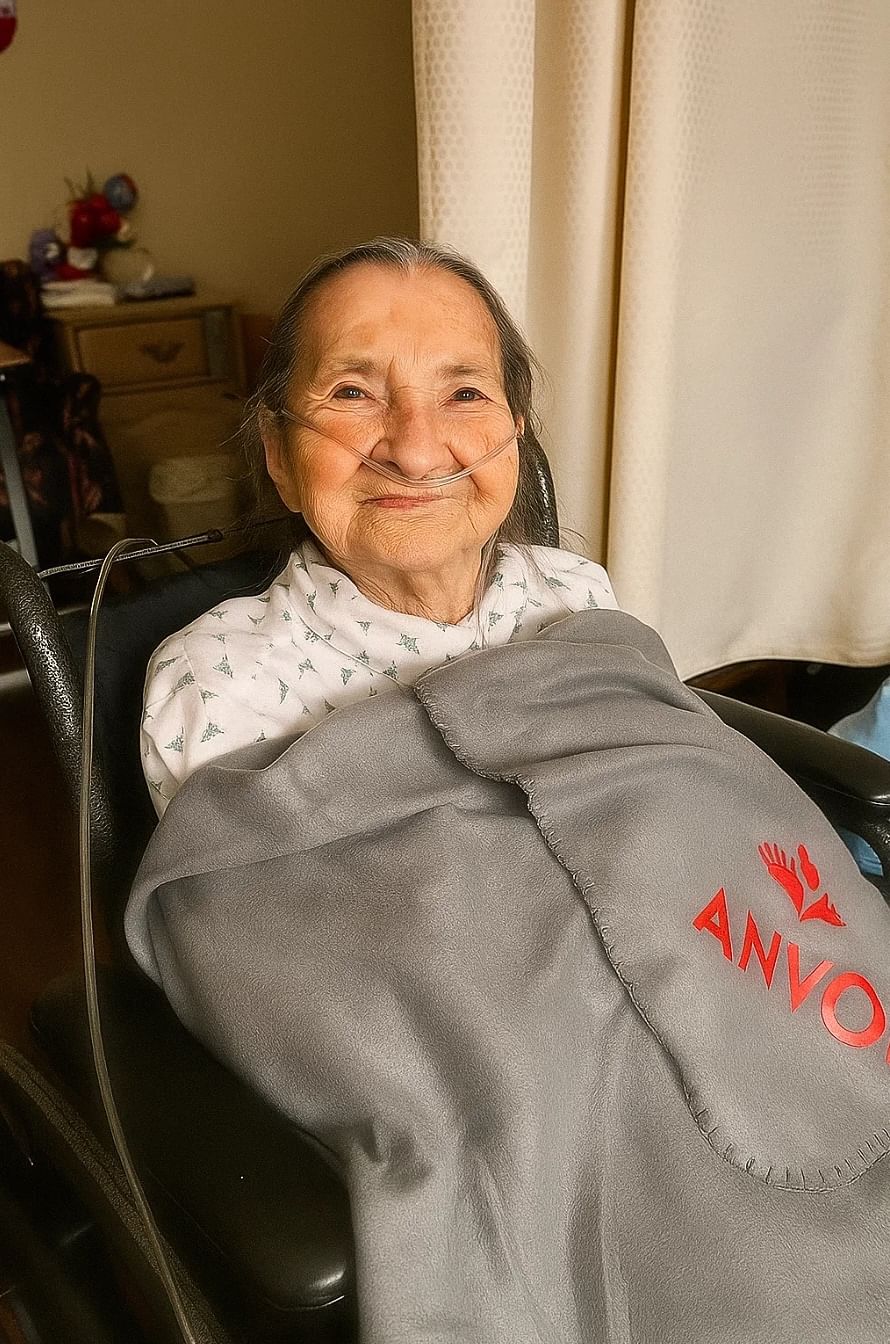5 Stages of Palliative Care: What to Expect at Each Step
When someone is facing a serious illness, palliative care helps ease that burden by focusing on comfort, quality of life, and emotional support. At Anvoi Hospice, we walk alongside patients and families every step of the way. Understanding the five stages of palliative care can help you prepare for what’s ahead and make informed decisions about your care plan.

Stage 1
Initial Diagnosis and Early Planning
Palliative care often begins at the time of diagnosis, especially for progressive or chronic illnesses. During this early stage, the primary focus is on understanding the patient’s condition, explaining treatment options, and establishing goals of care.
You can expect your palliative care team to spend time learning about the patient’s values and wishes. This stage may involve important discussions about the illness’s expected course, how symptoms will be managed, and which types of treatment the patient wants to pursue or avoid. Education is a major part of this process. Families are also included so that everyone is working from the same understanding.
The goal during this first stage is to build a strong foundation of support and make sure care decisions align with the patient’s values.


Stage 2
Advanced Symptom Management
As the illness progresses, managing symptoms becomes more complex. Palliative care helps patients cope with pain, fatigue, shortness of breath, nausea, anxiety, depression, and other issues that can impact daily life. This stage is focused on maintaining comfort and dignity while helping patients live as fully as possible.
The palliative care team may include doctors, nurses, social workers, and chaplains who work together to address physical, emotional, and spiritual needs. Adjustments are made frequently as symptoms change. This type of care can be provided alongside curative treatments or on its own, depending on the patient’s wishes.
At this stage, communication between patients, families, and care providers is key. Open, honest discussions allow the team to respond quickly and tailor support to the patient’s changing needs.
Stage 3
Transitional Care and Decision-Making
There may come a time when curative treatments are no longer effective or desired. At this point, palliative care shifts toward preparing for end-of-life care. This stage involves deeper conversations about personal preferences, advance directives, and whether hospice care should be considered.
Families may have questions about how the next steps will unfold. Palliative care specialists offer reassurance and clarity, helping everyone understand the available options. This is also the time when emotional and spiritual support becomes more essential. It’s normal for patients and loved ones to feel overwhelmed, and the palliative care team is trained to provide guidance without pressure.
By helping patients make meaningful choices based on their own values, this stage ensures their care remains focused on quality of life.


Stage 4
End-of-Life Support
When a patient nears the end of life, palliative care transitions into full comfort care. The goal is to relieve suffering, provide emotional support, and create a peaceful environment. Many patients receive hospice care during this stage, either at home, in a hospice facility, or in a nursing home.
The care team manages symptoms like pain, agitation, and breathing difficulty. They also support the emotional needs of both the patient and the family. This may include grief counseling, spiritual guidance, and help with last wishes or life review.
Families are not alone during this difficult time. Palliative care offers guidance on what to expect as the body begins to shut down. The team provides around-the-clock support, helping families focus on being present with their loved one.
Stage 5
Bereavement and Family Support
Palliative care doesn’t end after death. The final stage focuses on helping families navigate grief and begin healing. Bereavement services may include counseling, support groups, and follow-up care for months after the loss.
This stage honors the life of the patient while also recognizing the ongoing needs of the family. It’s a time to reflect, mourn, and find strength to move forward. The palliative care team remains a source of comfort, offering resources to help each person process their loss in their own way.
Grief is personal, and there is no right or wrong way to experience it. Anvoi Hospice’s commitment to care extends to this final stage, providing continued support during one of life’s most difficult transitions.

Compassionate Care Every Step of the Way
At Anvoi Hospice, we believe every stage of life deserves compassion, dignity, and support. The five stages of palliative care provide a path that respects each person’s values, easing the burden of illness while uplifting the spirit. Whether you are just beginning this journey or supporting a loved one, our team is here to help.
Reach out to Anvoi Hospice today to learn more about how palliative care can provide comfort and guidance when it matters most.
Our Locations
Areas We Serve
Testimonials
What People Are Saying
Our interdisciplinary team of physicians, nurses, social workers, chaplains, volunteers, and other medical professionals are trained to provide physical, emotional, social, and spiritual support to patients and their families. We’ve helped countless individuals through difficult times.











